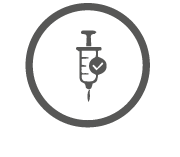
The Department of Health has officially launched a free contraception service that is open to all of general practice. John Street Surgery is delighted to participate. Equitable, patient centred, evidence based and accessible is in line with best practice and our mission. The service is free irrespective of your background and it should be a seamless process in the consultation and at the pharmacy. Please see below for some details.
Am I eligible?
As long as you have a PPS number and are over 17 years and under 27, then yes you are eligible.
What contraceptives are covered?
All of the usual types of contraception are covered:
Does the consultation differ?
The consultation is the same as before. You still need a checkup every 6 months for pills and patches. You still need to come in for a consultation and consent form ahead of implants or intra-uterine devices. The only difference you should notice is the extra money in your pocket. The scheme is designed to take away barriers to effective family planning, giving you more of a say in your overall health and wellbeing.

The CDM Programme aims to improve the health and well being of patients living with specific chronic diseases-Type 2 diabetes, Asthma, COPD and Cardiovascular disease. It is provided by John Street Surgery to ensure patients’ conditions are actively monitored to improve management of their conditions.
Am I an eligible patient and can I access this programme free of charge?
Next Steps: What will my practice be doing to include me in the CDM Programme?
Your GP or practice nurse will be inviting you to register for the Structured Chronic Disease Management Programme. We are also very happy for you to get in touch by phone or email and let us know you want to participate – this is the fastest way to enrol in the programme as it may take some time for us to get in touch with you if, for example, we do not have your mobile number or email address.
How will I benefit as a patient from participating?
How will the programme work for me?
There will be 2 free structured reviews in the GP surgery each year as part of the Chronic Disease Management Programme. This amounts to a total of 4 free visits per year.
Your information
Once you are on the Chronic Disease Management Programme you allow certain information to be collected at each structured review as part of the programme. During each structured review, your GP will record your:
Why is my information useful?
Information gathered as part of the Chronic Disease Management Programme will play a vital role in helping to improve our understanding of chronic disease. It will improve the health services’ ability to detect, treat and prevent chronic diseases as well as deliver an improved service to those with chronic disease.

John Street Surgery is registered with Cervical Check, which is the National Cervical Screening Programme. We provide free cervical smear tests, in line with the screening recommendations, to women aged between 25 and 60. Before attending for your smear test, you need to register online at www.cervicalcheck.ie and confirm that a smear test is due.

Cryotherapy is an effective treatment method that uses extremely cold temperatures to destroy the tissue. When the temperature drops low enough the skin cells effectively dies. Freezing is an inexpensive, safe and reliable way of getting rid of several different types of surface skin lesions.
What is Involved in Cryotherapy Treatments?
Cryotherapy freezes and destroys abnormal cells allowing normal skin cells to grow back in their place.
Liquid Nitrogen is applied by the doctor to the skin lesion for a few seconds, depending on the size of the lesion. Cryotherapy treatments may sting and be painful at the time of treatment but this will diminish. In some cases repeated treatments are sometimes required if a lesion is particularly resistant to treatment. On some occasions there can be moderate blistering of the area where the procedure has been carried out. Many people chose cryotherapy treatment as it is less invasive than scalpel surgery and it causes less pain and scarring.

The combined medical services are provided by your family doctor (GP) and a hospital obstetrician.
On your first pregnancy the GP provides an initial examination, if possible before 12 weeks, and a further 5 examinations during the pregnancy, which are alternated with visits to the maternity unit/hospital.
The schedule of visits may be changed by your GP and/or hospital obstetrician, depending on your individual situation. For subsequent pregnancies you will have an initial examination and a further 6 examinations.
If you have a significant illness, e.g. diabetes or hypertension, you may have up to 5 additional visits to the GP.
Care for other illnesses which you may have at this time, but which are not related to your pregnancy, is not covered by the Scheme.
After the birth, the GP will examine the baby at 2 weeks and both mother and baby at 6 weeks.

Caused by a number of factors, wax impaction happens when there is a build-up of excessive earwax in the ear. This can lead to deafness, pain, itch, tinnitus or infection if not removed. Microsuction is regarded as one of the safest methods of ear wax removal and is associated with high rates of patient satisfaction. The use of microscopes and a finely balanced medical suction device allows for direct visualisation of the ear canal and easy removal of the wax. This can reduce the risk of damage to the ear or infection that might be associated with older methods of wax removal. If you like, a wireless video otoscope may be used which allows you to see the wax for yourself.

Childhood immunisations are available free of charge as part of the National Childhood Immunisation Scheme. Please make an appointment with our nurse to arrange same. Further details can be found at
www.hse.ie/eng/health/immunisation/pubinfo/pcischedule/
The vaccination schedule is as follows;
|
At Birth |
BCG/Tuberculosis Vaccine is part of the schedule but has been out of supply for many years. It is given in the hospital. |
|
2 Months |
6 in 1 Vaccine (Diphtheria Tetanus Whooping Cough (Pertussis) Hib (Haemophilus influenzae b) Polio (Inactivated poliomyelitis) Hepatitis B) PCV (Pneumococcal Conjugate Vaccine) MenB Vaccine (Meningococcal B Vaccine) Rotavirus oral vaccine |
|
At 4 Months |
6 in 1 MenB Rotavirus oral vaccine |
|
Free from your GP |
6 in 1 PCV MenC (Meningococcal C) |
|
Free from your GP |
MMR (Measles Mumps Rubella) MenB |
|
Free from your GP |
Hib/MenC PCV |

John Street Surgery provides a range of adult and some travel vaccines.
Medical card patients are not fully covered for all of the above vaccines. There may be an additional fee. Please enquire at reception if you have any queries regarding this.
This year the flu vaccine is available free of charge for people who are in an at-risk group or who live with or care for people in at-risk groups. Also, given the particular circumstances and the pressures on the healthcare system the nasal flu vaccine will be offered to children aged 2-18 years of age which is also free of charge. Children who are outside of this age group and are in an at-risk group can also get the vaccine.
Before arriving for your appointment please wear loose clothing and have your upper arm exposed and ready for a quick administration of your vaccine.

Chlamydia testing | Trichomonas testing | Bacterial vaginosis | Hepatitis B& C | HIV | Syphillis | Gonorrhoea | HPV/Cervical screen test | Herpes Simplex Virus testing